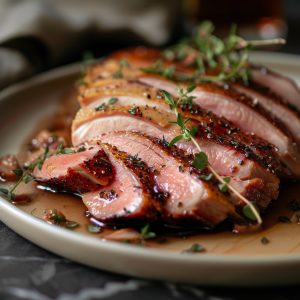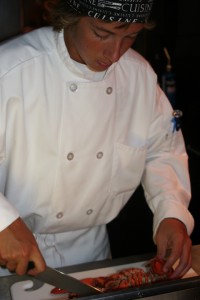Mistake #3: Not Being Aware of Costs
If you’re like most students, money will probably play a large role in deciding where to attend culinary school. As with any educational investment, there are factors related to tuition, housing, and fees to take into consideration.
However, culinary school adds another layer of challenge simply because the options are so diverse. From community colleges to private, four-year universities, you can complete culinary school for as a little as a few thousand dollars or as much as over one hundred thousand.
What Are the Average Tuition Costs of Culinary School?
Tuition is typically calculated quarterly or semester-by-quarter. No matter what schools you are considering, make sure you know exactly what tuition is annually and whether this is a year-round program or one that offers summers off.
In most cases, students can expect to pay the following:
| Community college, 2-year program | $1,000 to $5,000 annually |
| Culinary institute, 9-mo. to 2-year prog. | $7,000 to $36,000 annually |
| Public university, 4-year program | $5,000 to $12,000 annually |
| Private university, 4-year program | $14,000 to $45,000 annually |
It’s important to note that these totals don’t include traditional expenses related to fees and the costs of everyday life. Additional considerations include:
Room and Board: This term usually refers to living and eating on campus. However, even if you live in an apartment or house, you should still consider the additional costs of living near your school. For example, if you move to Los Angeles to attend a specific program, you may find that your household expenses increase when set against the cost of living in your original city.
Books: Culinary school focuses less on book learning overall, but you still might be expected to purchase textbooks and cookbooks. These are rarely cheap and can come in at $200 per book for several books each semester
Tools/Equipment: Items like knives, kitchen attire, and shoes are often not included in your overall tuition expenses. Because you may be required to meet school standards and only purchase these items on campus, the costs might be higher than what you might pay for items from your traditional supply store.
Lab Fees: If you’re in culinary school, chances are you’ll spend quite a bit of time in the kitchen labs. Most culinary schools charge additional fees for using kitchens and kitchen equipment, which are not included in tuition. Ensure you learn which lab fees will be tacked on to your bill upfront.
Culinary School Myths and “Guarantees”
Culinary school can be quite expensive – but it doesn’t have to cost more than any other traditional education. For example, while training through a premier private culinary institution might give a little more polish to your resume, you may find that once you enter the workforce, you are competing against local community college graduates for $10/hour line cook positions.
A hospitality management degree from a four-year public university might offer a higher level of entry into the working community than a private degree, and it rarely costs more than a standard four-year degree in any other subject. That’s because employers care less about prestige and more about skills and experience when it comes to many types of culinary work.
To get the most out of your culinary training, you need to make sure you have realistic expectations. Oftentimes, this means looking beyond school promises to look at the larger food industry in your community. After all, many culinary schools offer job placement services or boast a high post-graduation employment rate. Still, they rarely tell you exactly where these graduates work or how much they make.
It’s standard procedure to say that 80 percent of graduates are working in a kitchen upon completion of a course, even if that means they’re flipping burgers at the local fast food joint. You can remedy this by talking with alumni and restaurants in the community. Be sure to look at all the factors, including:
How is a degree/certification from the school received? Are employers more eager to hire graduates from the school, or does it make no discernible difference?
Are the graduates you talk to happy that they chose the school, or do they have regrets? Would they recommend a similar path?
Is there a way to take a culinary “shortcut?” For example, will your two years of culinary training make a difference in getting promotions, or is working from the ground up equally respected in the restaurant community where you live?
Have any graduates become Executive Chefs or risen to other professional achievements you’ve set for yourself?
Perhaps most importantly, you should weigh the costs of your education against your potential future earnings. If you won’t be able to make a living and pay off your school debts after graduation, you may need to choose a less expensive path.
Is A Culinary Career Right For Me?












